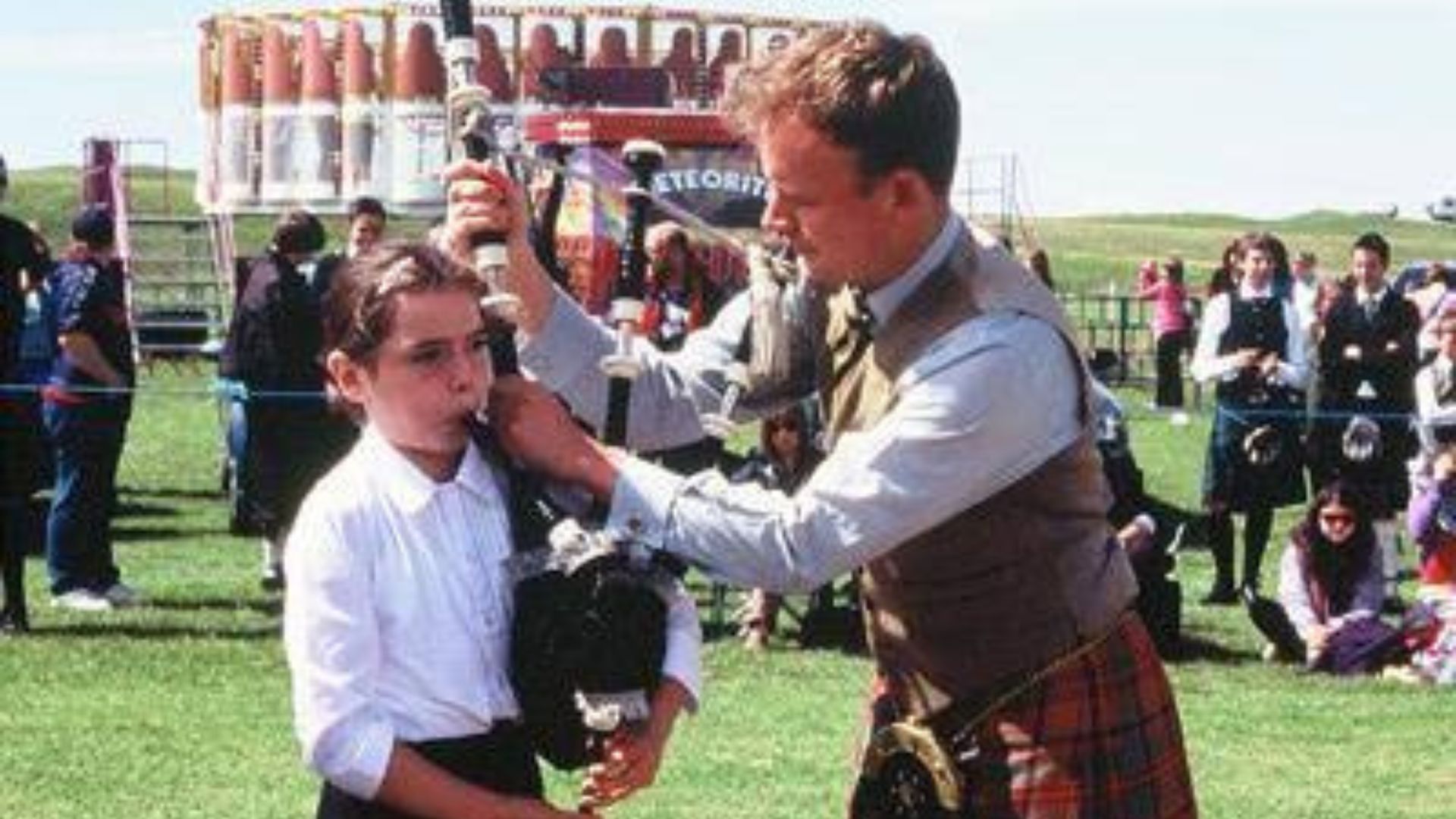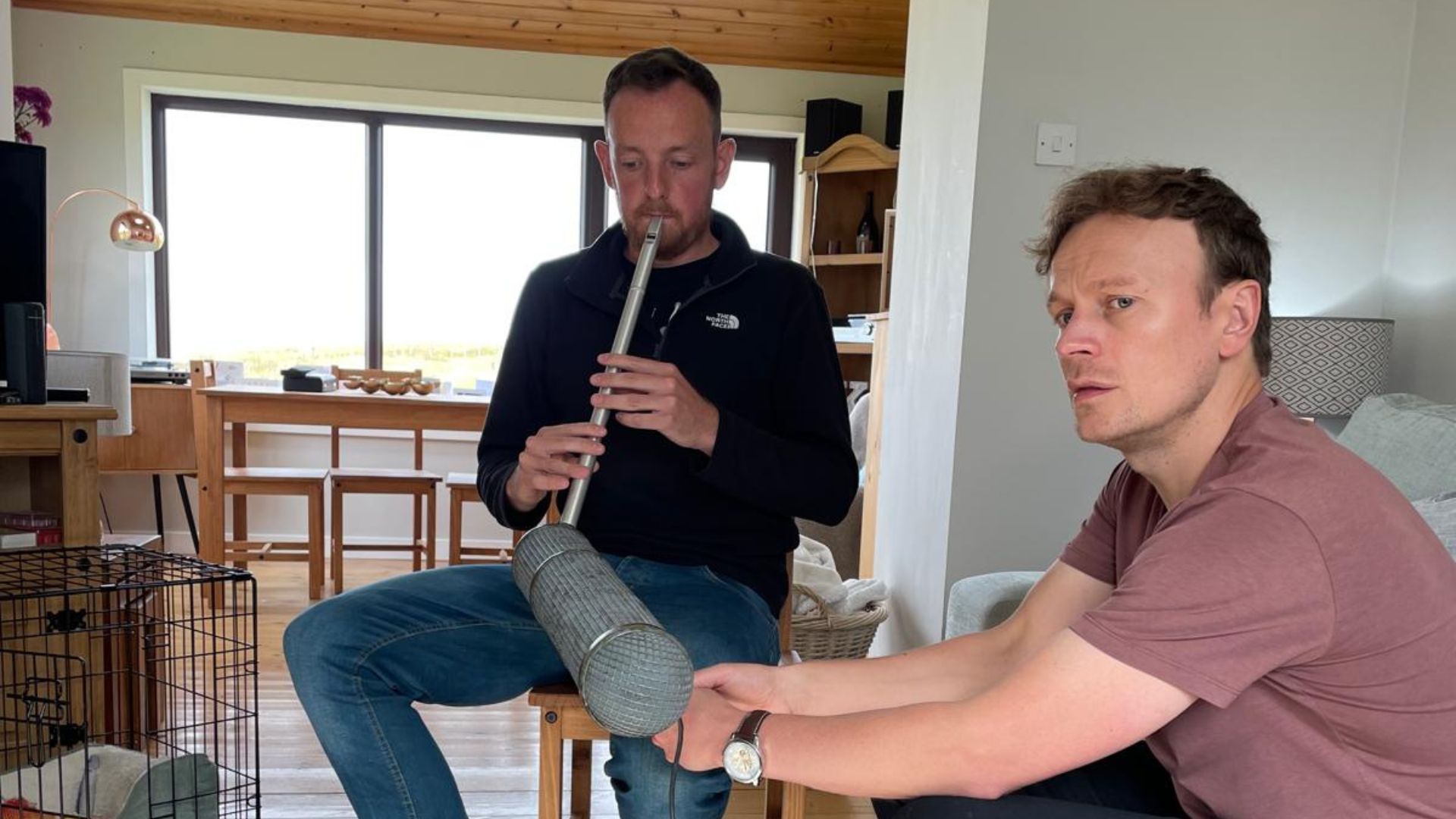Ones to Watch: CAIN
In our Ones To Watch series, we spotlight exciting new producers who are shaking up the game and progressing dance music culture while they do it.
Roots in the Highlands
No one's doing it quite like CAIN. Born and raised in Stratherick in the Scottish Highlands, CAIN’s musical education came through traditional Gaelic rhythms. He learned how to play bagpipes as a young child and soon entered global competitions, winning his first bagpiping competition at the age of 17 – the result of relentless practice.
Real name Duncan Grant, he'd always dreamed of combining his love for electronic music with his rich Gaelic heritage. When he went to university in Edinburgh, he started learning to DJ and entered scratch competitions. “Bagpipes are one of the most complex instruments in the world to play,” he says. “So scratching came to me quite easily.”

He was a big fan of Drum & Bass and breaks, but it was only when a friend played him a mixtape by Jeff Mills that dark, dubby techno really clicked for him.
After he graduated, CAIN moved to London, where he worked in advertising, but it took up so much of his time he had no energy to enjoy making music.
So he moved back to the Highlands to create more space for his creativity and realise his ultimate dream of combining the music from his childhood and lineage with his love for electronica.
“It was difficult to work and practice bagpipes for competition 3 hours a day,” he says. “So I decided to quit competitions and focus on creating music.”
The Sound of Lineage
CAIN says he’s most inspired by the Scottish wilderness, and wants to create music that matches the aesthetic of the Highlands. So he set to work creating EPs based on this concept, all leading up to the release of his debut album Lineage, released on June 19th, 2025.
The album is percussive-driven and emotive, blurring the boundaries between experimental electronica and Celtic music from the Scottish Highlands. CAIN describes Lineage as the result of a lifelong goal to combine his passion and experience in these respective worlds, and features his family friend and fellow piper Brighde Chaimbeul on Scottish small pipes, James Mackenzie on flute, and vocals by Katie Mackenzie.
The album is unlike anything that's ever been released, full of intense rhythmic percussion, soaring melodic elements, and ethereal beauty. The album was met with acclaim from both the traditional music world and the electronic music media, which is unusual to say the least.
“When you have music that sits in both worlds, sometimes it doesn’t get attention from either side,” CAIN says. But the album was featured across a range of media, including Bandcamp and a Q&A in The Skinny, while artists like Ben UFO, Gilles Peterson, Peggy Gou, Hunee, Haai, Erol Alkan, Ame, Oneman, and Midland all played tracks from his album.
“My dream is to hear Gaelic sounds on dance floors around the world,” he says. “People often associate bagpipes with someone making a racket, and associate Gaelic music with Enya, or the Titanic,” CAIN says. “But there's so much more to the instrument and genre than that.”
Reclaiming the Bagpipes
Even though bagpipes are one of the most complex instruments in the world to play, CAIN always felt there was dismissal from the classical music world. “I’ve still got a bit of a chip on my shoulder about that,” he laughs.
But, thanks to artists like Kneecap, he's witnessing the revival of pride in Gaelic culture, and is pleased to see younger pipers readily showcasing their heritage.

“Older music forms that last hundreds of years stick around for a reason – because they’re hauntingly good,” CAIN says. “Ancient melodies are timeless, and in a world that's become increasingly homogenous with Starbucks everywhere, celebrating cultures and a sense of place is so important to me."
The Journey Continues
Coming up for the CAIN project, he plans to prepare a live set of his Lineage album using a Blair digital chanter, which works with laser sensors tuned to become super sensitive. “You can plug it in as a MIDI controller, and control any synth from it, and do a lot of live playing, but not actually through the pipes,” he says. “I’ll play Scottish small pipes into the modular and add all these extra levels of liveness and layers of sound, all constructed around the tunes of my albums.”

He also plans to collaborate with a Gaelic-Celtic artist called BAIUCA from Spain and a rapper from Uganda. On top of all that, CAIN also works full-time for the National Youth Orchestra.
“And I've got a lot of individual tracks I created that didn't fit on the album, so I’ll release those as well,” he says.
CAIN's aim is to portray the beauty and power of Highland musical traditions, and he's just at the beginning of his journey. There’s so much more to come from this boundary-pushing artist, and we can’t wait to see what he does next.
For all his latest news and events, follow CAIN on Instagram.








